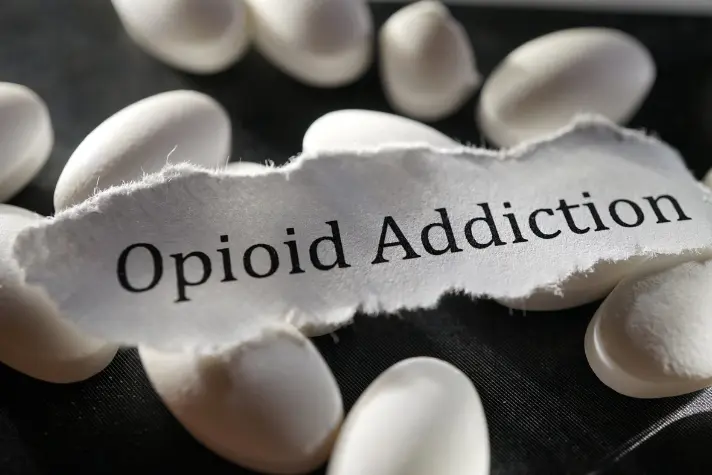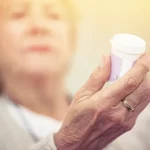
To effectively treat opioid addiction, one must comprehend the complex network of variables that contribute to this difficult condition.
In this article, we’ll delve into actionable strategies and essential insights, offering a roadmap for those seeking recovery.
Understanding Opioid Addiction
Opioids, potent pain relievers, interact with the brain’s receptors, altering the way the body perceives pain. On the other hand, abuse can result in addiction and dependence.
Prescription painkillers like oxycodone and hydrocodone as well as illegal substances like heroin are among these medicines. Opioids bind to receptors in the brain, diminishing pain signals but also triggering a surge of pleasure.
The brain changes with time, and more opioids are needed to have the same effect. This cycle of increasing tolerance can lead to dependence and the challenging journey of breaking free from addiction.
Recognizing these aspects is the foundation for embarking on a successful path toward recovery.
Seek Professional Help Early
Physicians and addiction experts are among the healthcare providers with the necessary skills to help people navigate the intricacies of addiction.
Prompt intervention greatly raises the likelihood of positive treatment results. Early evaluation enables the development of individualized treatment programs that are specific to each patient’s need.
These medical providers can offer insightful information about the range of therapy choices available, including newer choices such as the Sparrow RX treatment option.
Explore Medication-Assisted Treatment (MAT)

Medication-assisted treatment (MAT) is a comprehensive approach to overcoming opioid addiction. MAT mixes behavioral therapy and counseling with drugs such as methadone, buprenorphine, or naltrexone.
These medications play a crucial role in managing cravings and withdrawal symptoms. When used as part of a supervised treatment plan these medications contribute to stabilizing brain function and reducing the risk of relapse.
This integrated approach, incorporating medication along with therapeutic interventions, offers a well-rounded strategy for individuals seeking effective and sustainable recovery from opioid addiction.
Engage in Therapy and Counseling
Behavioral therapies, such as cognitive-behavioral therapy (CBT), give people the vital tools they need to recognize and alter the negative thought and behavior patterns linked to addiction.
Counseling, often conducted one-on-one or in group settings, offers crucial emotional support during the recovery process. These therapeutic modalities enable people to rebuild their lives, regulate stress, and create coping skills.
Effective counseling helps address the underlying issues contributing to addiction, fostering a greater understanding of oneself and promoting positive behavioral changes essential for long-term recovery.
Build a Strong Support System

Surrounding oneself with a network of supportive friends and family plays a crucial role in maintaining motivation and resilience. Open communication within this support system fosters understanding and encouragement, providing emotional stability during challenging times.
Having a solid support system in place also helps to foster an atmosphere that is favorable to rehabilitation. By sharing the journey with those who understand and encourage, individuals struggling with opioid addiction find strength, motivation, and a sense of belonging, essential elements for sustained recovery.
Stay Committed to Aftercare
After completing initial treatment, ongoing engagement in aftercare programs is essential for continued support. This entails attending follow-up doctor’s appointments, regular therapy sessions, and involvement in support groups.
Aftercare programs offer a safety net in case of a potential relapse and assist people in navigating the difficulties of reintegrating into regular life.
Consistent involvement in aftercare reinforces the skills acquired during primary treatment, promotes accountability, and offers ongoing emotional support, contributing to the long-term success of the recovery journey.
Conclusion
By understanding the nature of addiction, seeking professional help early, exploring medication-assisted treatment, engaging in therapy, building a strong support system, and staying committed to aftercare, you equip yourself with the tools necessary for lasting recovery.
Remember, recovery is not a linear path, and setbacks may occur, but staying resilient and connected to your support network will be key.
On your path to a better, addiction-free life, keep your eyes on the prize, acknowledge your little accomplishments, and never give up.
About The Author:
Stacey Smith is a freelance health writer. She is passionate about writing about women’s health, dental health, diabetes, endocrinology, and nutrition and provides in-depth features on the latest in health news for medical clinics and health magazines.




![[Infographic] Dangerous Trends in Opioid Abuse in Illinois Infographic](https://www.safeandhealthylife.com/wp-content/uploads/2017/03/Infographic.png)